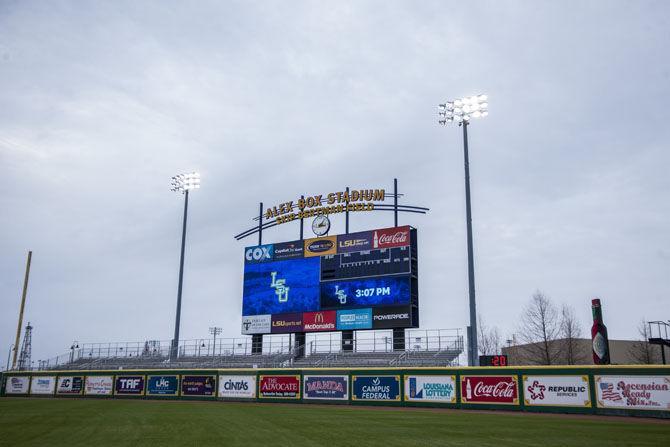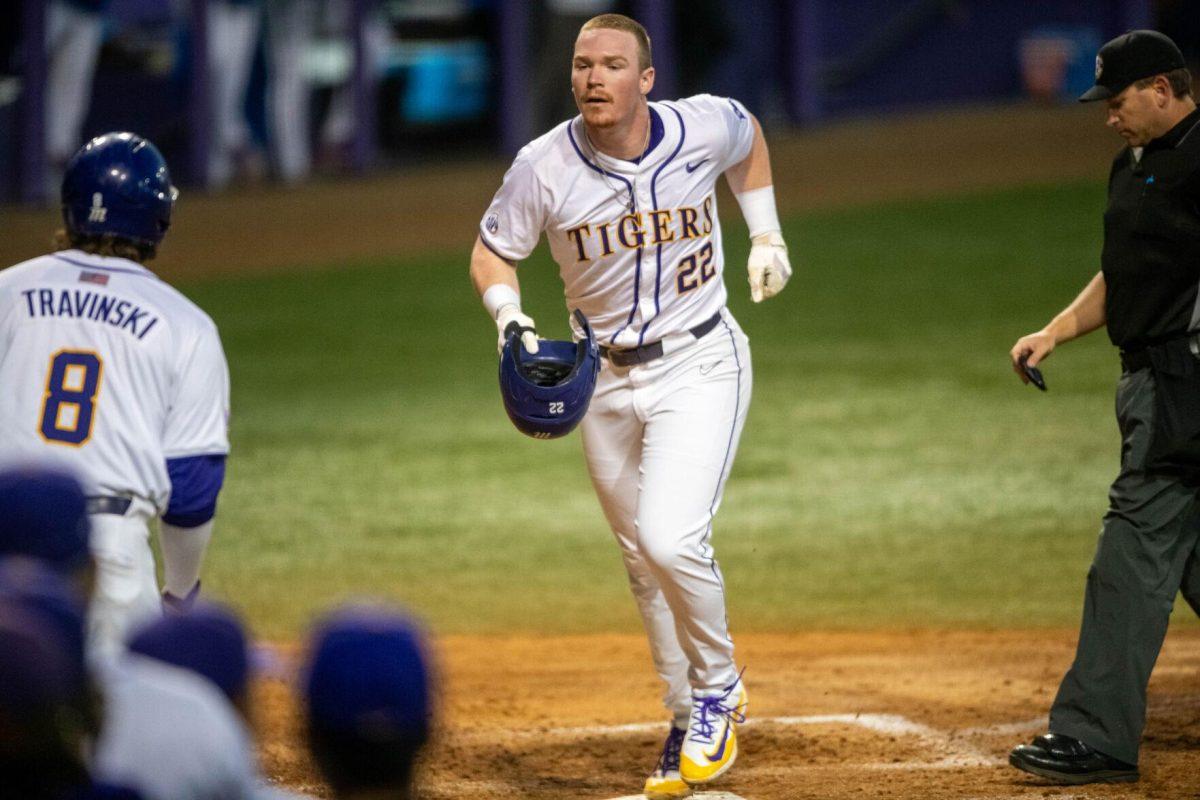The experience a fan receives at Alex Box Stadium is unlike any other in college baseball.
Former LSU coach Skip Bertman wanted the fans to feel as if they were going to a big league ball game, and that starts with all the small things that go on behind the scenes.
The men and women who work at Alex Box are what turn an ordinary baseball game to a memorable experience.
David Taylor, assistant athletic director for game management, oversees security, guest services and overall planning of the Box for a game. Taylor doesn’t work alone as there are a variety of departments that handle different situations in preparation for a game.
The facility staff oversees the grounds, works with LSU coach Paul Mainieri and the players, while Landmark Event Staffing Services provides security, ushers and ticket collectors.
All preparations for a game begin the night before first pitch.
If there was a game the previous night, the maintenance crew will go in to immediately clean the stadium. Taylor and his staff will usually arrive four hours before first pitch to set up.
During games, Taylor estimates there are a few hundred staffers working to make an LSU baseball game unforgettable. This past weekend, independent food vendors like Dippin’ Dots began taking food to the customers to create a more guest-friendly atmosphere.
Taylor doesn’t have any feedback because it is still new, but hopes that fans will appreciate the effort to make the Box as inclusive as possible.
“We talked about it in years past but never had it as an offering,” Taylor said. “It’s an added value service for our fans so they don’t have to get up and go to the concession stand during the game. It’s a first step in trying to enhance the services.”
Hunter Sexton, manager of the grounds at Alex Box Stadium, works to get the field ready for competition on game days.
During the week, Sexton and his staff will get to work on the field no later than 7:30 a.m., which includes preparing the mound and plate, mowing the outfield grass, keeping the infield turf clean and making sure the warning track clay is level and not clumpy.
Sexton said that morning process can take anywhere between four to five hours with the most important component: making sure the clay is compact in the infield as well as watering the infield.
“The infielder really relies heavily on the playing surface on the clay,” Sexton said. “The clay can’t be too soft or too hard, so that’s very important.”
Sexton works closely with Mainieri and the players on a day-to-day basis mainly because of weather conditions. There are only two conditions when the tarp needs to be put on the field and that’s lightning within an eight mile radius or hard rain.
Sexton said the hard rain is determined on if the rain can be heard beating off the roof of the Box.
“On a gameday we’ve typically already communicated on what they need,” Sexton said. “If we have to put the tarp on the field throughout the day I’ll shoot coach a text and give him updates periodically.”
Sexton grew up playing baseball in Tennessee and majored in turf management when he got to LSU. Sexton started working on the grounds crew immediately and worked his way up the chain of command and took a full time position once he graduated.
“I was attracted to sports from a young age,” Sexton said. “That’s pretty common for groundskeepers to gravitate toward the sports they played. It originally started with me, my father and my brother working the grounds of my high school field. So it’s something I’ve done for a long time.”
Event management staff works behind the scenes for LSU baseball
By Glen West
April 19, 2018
LSU men’s baseball team practices at Alex Box Stadium on Friday, Jan. 26, 2018.
More to Discover






